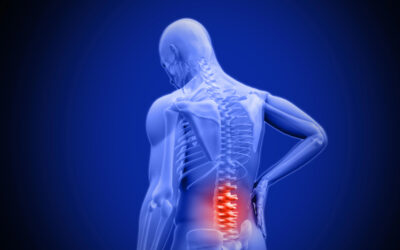
If you’re one of the 80% of adults who experience back pain at some point, you may wonder if stress plays a role. Research shows chronic stress can lead to muscle tension, inflammation, and pain sensitivity – all of which can contribute to back pain. Understanding this mind-body connection is key to effective management. In this guide, we’ll explore the complex relationship between stress and back pain and provide tips to find relief.
The Relationship Between Stress and Back Pain
Studies demonstrate that prolonged stress can lead to chronic musculoskeletal pain. When you’re stressed, your body releases cortisol and adrenaline. Over time, this can cause cortisol dysfunction and impact inflammatory pathways. The end result is tissue degeneration, oxidative damage, and pain.
Stress also directly influences pain processing in the brain. People under high stress have increased sensitivity to painful stimuli. Major life stressors can alter neurotransmitter activity in ways that reduce natural pain inhibition.
In terms of back pain specifically, stress contributes through:
- Muscle tension – Stress triggers involuntary muscle tightening in the back, neck, and shoulders. This tension leads to stiffness, spasms, and pain.
- Increased pain sensitivity – As mentioned, stress amplifies painful sensations through neural pathways. Back discomfort is felt more acutely.
- Inflammation – Chronic stress promotes inflammatory responses throughout the body, including in spinal tissues. This can lead to painful inflammatory back conditions.
- Postural changes – When stressed, people tend to hunch their shoulders and breathe shallowly. These postural habits strain the muscles of the upper back.
- Reduced blood flow – Stress responses like vasoconstriction decrease circulation to the back muscles, depriving them of nutrients and oxygen.
According to one analysis, severe stress was linked to a 2.8 times higher risk of low back pain compared to the general public.
Symptoms of Stress-Related Back Pain
Back pain from stress varies based on its location in the spine.
Lower back pain often feels like a dull, deep ache or stiffness in the lumbar region. It may also cause sharp muscle spasms and radiating pain down the legs.
Upper back pain manifests as burning, stabbing sensations, or tightness between the shoulder blades. The pain may extend into the neck, shoulders, chest, and arms.
Stress-induced back pain ranges from mild to incapacitating depending on your stress levels and pain tolerance. Flare ups are commonly triggered or exacerbated by stressful events. The pain may come and go rather than being constant.
Is Your Back Pain from Stress?
Given all the potential causes, determining if stress is the culprit can be tricky. Here are some clues that point to a stress connection:
- You’ve experienced major life stressors recently
- Your pain developed gradually over time
- You have no other symptoms like numbness/tingling
- Your pain seems to flare up during stressful periods
- Stress relief techniques provide some pain relief
Talk to your doctor if you suspect your back pain is stress-related. They can help rule out other causes through a physical exam, imaging tests, and a review of your health history.
How Long Does Stress-Related Back Pain Last?
For some, stress-induced back pain resolves within days or weeks once stress levels decrease. But without addressing the root cause, it can become a chronic issue.
Studies found that certain stress types – like worrying, social isolation, and perceived life stress – are risk factors for long-term back pain intensity and disability.
This research highlights the importance of mitigating stress to prevent acute pain from progressing to chronic. Coping strategies and stress-reduction tactics play a big role in breaking the pain cycle.
Treating Back Pain from Stress
Conservative treatments aimed at symptom relief include:
- OTC pain relievers like NSAIDs or acetaminophen to reduce inflammation and discomfort
- Heat therapy such as heating pads, warm compresses, or baths to relax muscles
- Massage to release muscle tension and spasms
- Targeted stretches and exercises to increase back flexibility and range of motion
For lasting results, lifestyle changes and stress management techniques are key:
- Exercise helps boost mental health and prevent musculoskeletal deterioration
- Healthy nutrition provides antioxidants to reduce inflammation
- Relaxation practices like deep breathing, meditation, yoga, or tai chi promote the relaxation response
- Social connection offers mood-boosting support and stress relief
- Mindfulness training helps gain perspective on stressors
- Adequate sleep gives the body a chance to heal and recharge
Seeking counselling may also help if emotional factors are contributing to your chronic stress.
Preventing Stress-Related Back Pain
Along with stress management, proper spine care can keep pain at bay:
- Maintain good posture – Keep your ears, shoulders, and hips aligned when sitting and standing
- Build core/back strength – Strengthening exercises reinforce your spinal stability
- Stretch regularly – Stretches keep muscles flexible and relaxed
- Practice ergonomics – Use proper form when lifting, take sitting breaks, and optimize your workspace setup
- Lose extra weight – Excess weight strains the back; losing even 5-10 lbs can help
- Quit smoking – Smoking reduces bone density and slows healing
- Get sufficient sleep – Aim for 7-9 hours per night so muscles can recover
As you can see, both reducing stress and proactively caring for your back are essential to preventing and treating back pain.
Conclusion
Research clearly shows that chronic stress is a major risk factor for back pain development and exacerbation. By recognizing the ways stress contributes to pain – like muscle tension, inflammation, and posture changes – you can be better equipped to manage it. A multidimensional approach involving pharmaceuticals, therapy, stress relief practices, ergonomics, and healthy lifestyle choices offers the best chance for overcoming stress-induced back pain. As with any chronic pain, work closely with your healthcare providers to find the right treatment plan for your needs.
References
- Back Pain and Stress: https://www.medicalnewstoday.com/articles/324921
- Can Stress Cause Back Pain?: https://www.healthline.com/health/can-stress-cause-back-pain
- Stress and Back Pain: https://my.clevelandclinic.org/health/articles/11208-back-pain-and-stress
Written by Dr. Tony Mork
Orthopedic Spine Surgeon
I’m Dr. Tony Mork, MD, a Minimally Invasive Orthopedic Spine Surgery Specialist in Newport Beach, California. With over 40 years of experience, I’m dedicated to providing information for all topics that involve neck and back pain.
November 8, 2023
Contact a Spine Specialist Near You!
Related Articles
Lower Back Pain | An Overview
Lower back pain is an exceedingly common affliction that affects up to 80% of adults at some point in their lives. Understanding the underlying causes of lower back pain is key to finding the appropriate treatment and relief. Anatomy of the Lower Back The lower back,...
Degenerative Disc Disease | Causes and Risk Factors
Degenerative disc disease describes age-related wear and tear to the rubbery spinal discs cushioning the vertebrae that can lead to chronic back or neck pain. While partly genetic, there are also lifestyle factors and injuries that accelerate disc degeneration over...
Upper (Thoracic) Back Pain | What is Causing My Pain?
Upper back pain is a surprisingly common affliction, affecting up to one-quarter of the adult population at some point. While not as prevalent as lower back pain, discomfort in the thoracic region still accounts for a substantial slice of musculoskeletal complaints...



